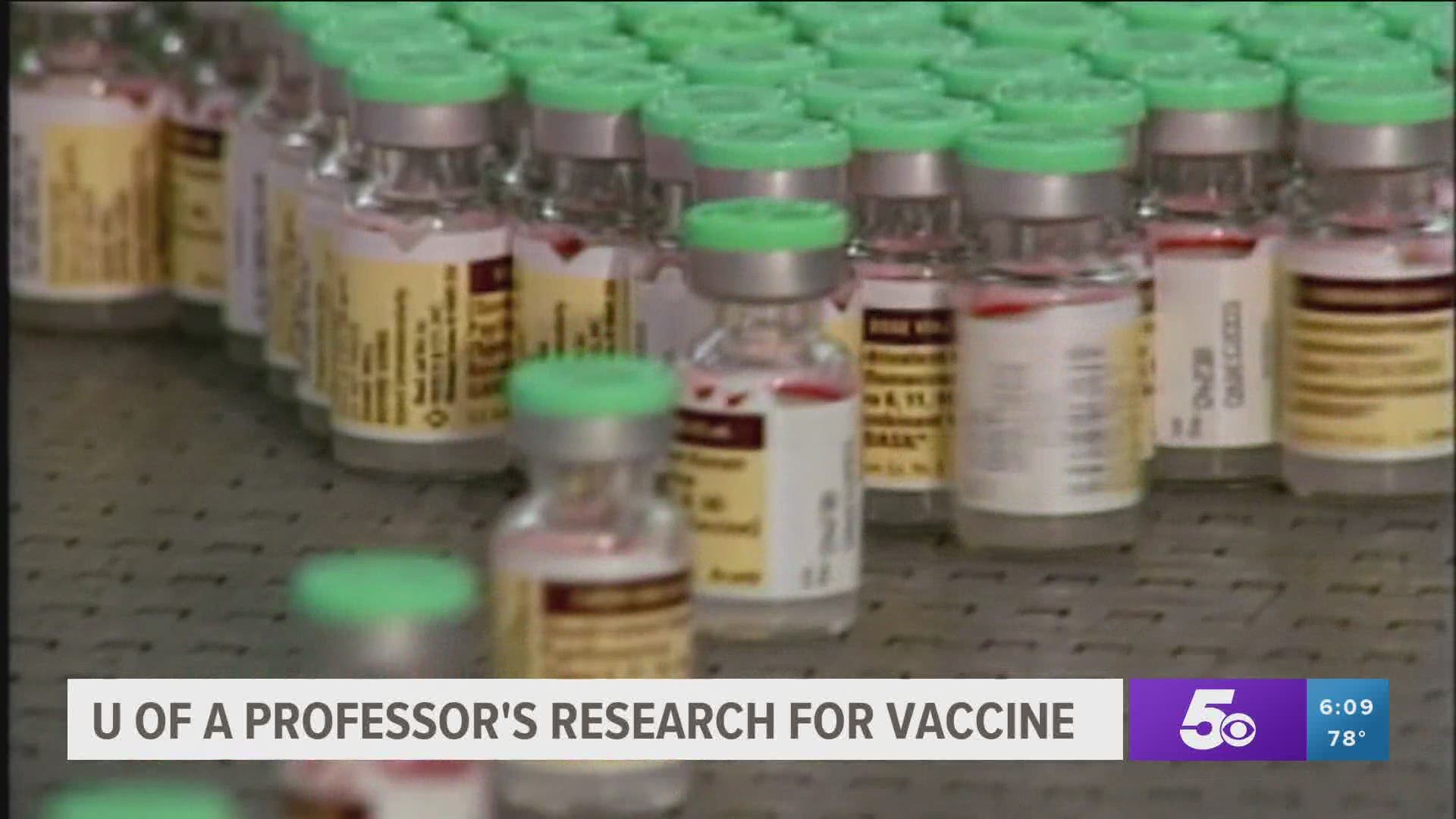FAYETTEVILLE, Ark. — A University of Arkansas professor has been granted access to one of the countries most advanced supercomputers, sponsored by the National Science Foundation, to research a potential vaccine for the novel coronavirus (COVID-19).
The race is on to find a vaccine for COVID-19, but before researchers can create a drug, they need to find out just how the virus attacks human cells. Research done by a team at the University of Arkansas has shed some light on just how quickly the infection can spread throughout the body.
The supercomputer technology granted to Dr. Mahmoud Moradi allows the professor to see a 3D visual simulation of the COVID-19 molecule. The research focuses on the "spike protein" of the virus, which can recognize and fuse with healthy human cells, allowing the virus to multiply rapidly.
"We have been able to capture some of the dynamic features of this protein. We have been comparing this novel of coronavirus to the older coronavirus which is the cause of the 2003-2004 epidemic," Dr. Mahmoud Moradi said.
The University of Arkansas team has completed their research over the "spike protein," revealing this strain of the coronavirus begins infecting the body in microseconds, which is far faster than previously thought.
"Supercomputers are essential for our kind of research because if you consider the whole environment of a protein, then you're talking millions of atoms. And for computational chemistry, that means you need to solve millions of equations, which the supercomputer helps us do that," Grad Assistant Vivek Govind Kumar said.
The next step is publishing their "spike protein" research results, and then drug trials can begin.
According to Dr. Moradi, most research is being done to prevent the spike protein from attaching to healthy cells. The University of Arkansas team wants to find a drug to stop the protein from ever activating.
"A lot of other people are trying to find drugs that somehow prevent the protein from binding to the human cell, we are potentially trying to find a drug that will prevent the protein from being activated all together," he said.
The University of Arkansas research team meets every day to discuss their findings and trying to get their discovering published as soon as possible so they can move onto the next step - finding a vaccine.
Dr. Moradi said the research done by the University of Arkansas should be published by the end of the summer, then they will begin drug trails to try and find a vaccine.

